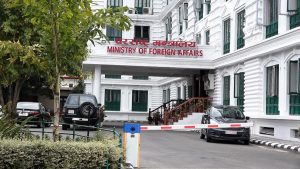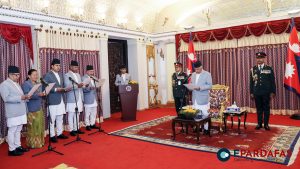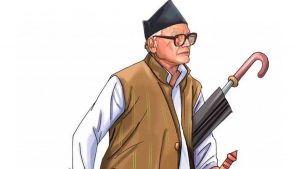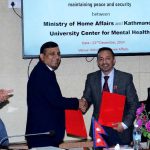
Nepalese women say Chinese traffickers are still looking for them
Three Nepalese women who were trafficked by two Chinese men and later returned home, claimed that they feel unsafe because Chinese traffickers were looking for them. These women had returned home from Laos in November with the help of locals and a Nepalese. On their complaint, two Chinese nationals were arrested and sent to jail by the local court.
The trafficking case became the headlines in Nepal in December because of cross border trafficking. According to recent report in the Kathmandu post, one of trafficked women claimed that though they survived the place, the Chinese were searching for them through their agents, perhaps to exact revenge as their business got spoiled because of the intervention by the police. She said she is still in contact with the Chinese workers at the call centre in Laos who continue to be exploited.Lalita which is not her real name said, “Last week, I was told by one of my Chinese friends there that four more Nepalis had been recruited. I fear what might happen to them.”
The shocking revelations by the trafficked women highlights the cross border network of Chinese nationals involved inhuman trafficking in Nepal, Laos and several other countries. The Chinese has remained silent about illegal gaming, drugs, digital frauds, girl child trafficking etc.
The Chinese nationals had been arrested by the Nepal police on the charge of being involved in human trafficking. They had been charged with luring three Nepali citizens to visit Laos via India and Thailand on September 1, offering them free tickets and visas for online sales and marketing jobs in Laos. According to available information, the accused had been living in Thamel for months to hunt and lure suitable girls to traffic them to foreign countries. They were arrested after an FIR filed by three girls along with their parents. The Chinese nationals had lured them to Laos on the pretext of providing them attractive jobs and charged them 400,000 Nepalese rupee.
According to Himalayan Times, Nepal’s leading English daily, Chen Yang used to lure women from rural districts like Sindhupalchowk and Arghakhanchi and Chaohong would act in the guise of a legal person operating oversees services from Kathmandu. They took interviews and made false promise of earning from 1,000 US dollars to 1,500 US dollars working as cleaners in supermarkets and hotels. In Laos, they forced them to work in call centres, bought them SIM cards and created fake IDs on social media. They even seized their passports and identity cards and forced them convince Europeans and US citizens to investing illegal gambling, bitcoins and other digital financial transactions. The traffickers threatened them with dire consequences. Somehow, these girls managed to escape from there with the help of Nepalese and returned home.
According to news reports, Chinese nationals have been frequently visiting Laos’s the Golden Triangle Special Economic Zone (GTSEZ) for human trafficking, illegal gambling and digital fraudulent activities. The zone is reportedly run under the de facto sovereignty of Chinese gambling kingpin and real-life Bond villain Zhao Wei.
Incidentally, Zhao has been sanctioned by the US government for running a “horrendous” criminal organization. He is accused of exploiting the region by “engaging in drug trafficking, human trafficking, money laundering, bribery, and wildlife trafficking, much of which is facilitated through the Kings Romans Casino located within the GTSEZ,” according to the US Treasury.
GTSEZ was established 15 years ago by Laos’ notoriously corrupt totalitarian government with the help of Zhao’s investment. Through bribery and promises of further investment, the billionaire has been allowed to run the zone as per his requirement. However, he has transformed it into a “lawless playground” for wealthy Chinese visitors. However, GTSEZ has been declared the worst of its kind in the entire world, according to casino.org. Laos reportedly treats the area like an autonomous state, subject to its own rules, which runs on Chinese time, and where the main languages and currency used are also Chinese.
According to Corporate intelligence consultancy firm the Adrianople Group, zone was an “embarrassment to the global special economic zone (SEZ) industry” and called for its condemnation. Thibault Serlet, the firm’s director of research, said GTSEZ, in Laos’ remote Bokeo province, had become a center for “human trafficking, wildlife smuggling, and drugs production.”
Ironically, Chinese nationals have not spared poor women in Laos. They have trafficked women from Laos to China to serve as wives for Chinese men or to work in prostitution amid economic pressure following the Covid-19 pandemic. The Covid-19 pandemic caused economic hardship in many Lao communities, leading to an increase in the trafficking of Lao women and girls to China. The modus operandi is simple. Trafficking is typically brokered by Lao middlemen who recruit young women or convince parents to marry off their daughters.













Comments